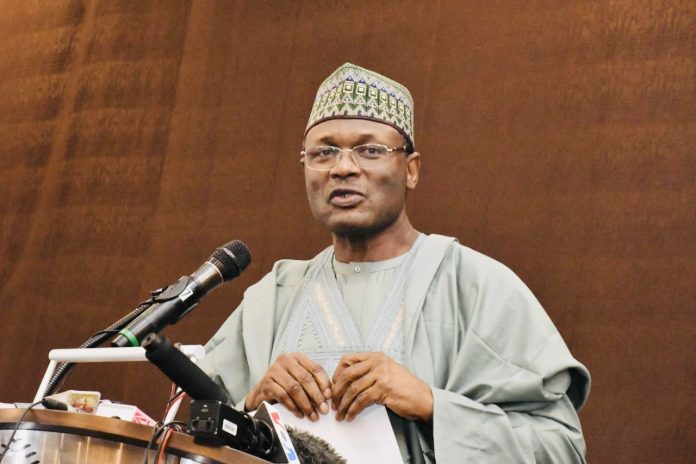By Augustine Iheanacho
In recent weeks, Nigeria has witnessed an intensifying public outcry for the resignation or dismissal of the Chairman of the Independent National Electoral Commission (INEC), Prof. Yakubu Mahmood. This movement, fuelled by widespread discontent with the conduct of the 2023 general elections and especially the recent off-cycle elections in the country, has rapidly gained momentum on social media, with the hashtag #YakubuMustGo trending across various platforms. The call for his removal has sparked a wider conversation about the credibility and independence of INEC, as well as the integrity of Nigeria’s electoral processes.
The origins of the #YakubuMustGo movement can be traced back to the controversial 2023 general elections, which saw a series of irregularities that raised concerns about the transparency and fairness of the electoral process. However, the recent controversial Edo state governorship election has renewed this cry as many Nigerians are afraid that the leadership of the commission is unfit to conduct credible polls. Despite the high hopes surrounding the elections, especially with the introduction of new technologies like the Bimodal Voter Accreditation System (BVAS), many Nigerians felt the process was marred by widespread failures, inefficiencies, and allegations of rigging.
Among the most significant grievances was the delay in uploading results from polling units to the INEC results portal. This delay led to widespread suspicion that results were being manipulated or tampered with before they were made public. Also, it was discovered that the results uploaded on INEC Result Viewing Portal (IREV) are different from the Certified True Copies by the commission. Many Nigerians felt that INEC, under the leadership of Prof. Yakubu Mahmood, failed to deliver a credible and free election in Edo, further undermining trust in the electoral system.
- #YakubuMustGo: Calls for Sack of INEC Chairman Intensify as Hashtag Trends on X
- Dangote Refinery: Finally, a Solution Nigeria Can’t Import!
The rise of #YakubuMustGo is largely driven by social media platforms, which have become an indispensable tool for political mobilisation and protest in Nigeria. Twitter, in particular, has been the epicentre of this movement, with users expressing their frustration and calling for Mahmood’s ouster. This growing online mobilisation reflects the heightened political awareness among Nigerians, particularly the youth, who are increasingly dissatisfied with the state of governance and electoral integrity in the country. The hashtag has become a rallying cry for those who believe that Mahmood’s tenure at the helm of INEC has contributed to the erosion of public confidence in the electoral system.
Various political parties, particularly opposition groups, have voiced their dissatisfaction with the election results and accused INEC of bias and mismanagement. Some parties have even gone as far as petitioning the Nigerian courts, demanding a review of the election results and calling for Mahmood’s removal.
The #YakubuMustGo movement highlights the deep-rooted distrust that many Nigerians have in the country’s electoral system, which has been plagued by allegations of fraud, rigging, and malpractice for decades. For a country that prides itself on its democratic credentials, the conduct of free, fair, and credible elections is a critical issue. The growing demand for the sack of Prof. Yakubu Mahmood is not merely a reaction to his leadership but also a call for a broader overhaul of INEC and the electoral system itself.
To restore public confidence in the process, many Nigerians believe that INEC must undergo comprehensive reform.
As the country moves forward, the voices of the people, amplified through social media and civic activism, will continue to shape the conversation about Nigeria’s electoral future. Whether INEC’s leadership will change or not, the growing demand for electoral reform is unlikely to subside until Nigeria’s elections reflect the true will of the people.
Iheanacho is an activist and writes from Chicago, USA





